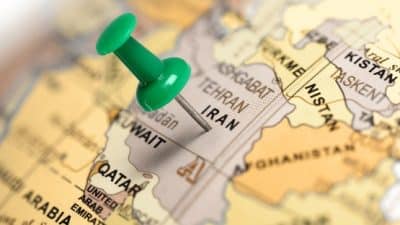
For its report on 2022’s Happiest States in America, WalletHub compared 50 states across 30 key indicators for happiness.
Data ranges from the depression rate and share of adults who feel productive to income growth and unemployment rate.
According to the personal finance website, while 87 percent of Americans feel anxious or very anxious about inflation, the happiest state is Hawaii with a 66.31 score. Maryland comes in no. 2 with 62.60, followed by Minnesota with 62.43, Utah at 62.41 and New Jersey at 61.71.
Virginia’s ranking at no. 11 is with a 57.84 score. According to WalletHub, Virginia is 13th for percentage of depressed adults, 16th for suicide rate, and 17th for percentage of civilian labor force unemployed 15 weeks or more.
Other rankings for the Commonwealth of Virginia include 14th for volunteer rate, 16th for separation and divorce rate, 14th for safety and 21st for share of adults who feel active and productive.
WalletHub reached out to experts to provide comment on specific questions. The first question: What are the keys ingredients to a happy life?
“Once the basic necessities of life are secured (safety, shelter, food, etc.), the key to happiness appears to be strong social relationships with a few other people,” said SUNY Geneseo Associate Professor Jim Allen. “These relationships can’t be causal friendships. Instead, they must involve strong emotional bonds that are predictable, recurring and intimate (not necessarily sexual). We seem to satiate ourselves with a relatively low number of these relationships, perhaps 4 or 5. We have trouble handling more than that. There are individual differences, but social relationships seem to be really key for people.”
Dr. Emily C. Willroth, Assistant Professor at Washington University in St. Louis, said researchers have identified several ingredients for a happy and fulfilling life: “positive emotions, meaningful social relationships and having a sense of purpose in life, to name just a few.”
Wait, what about money? Isn’t it a key to happiness?
“There is currently a debate about this. A famous study conducted by organizational psychologist Daniel Kahneman and his colleague Angus Deaton in 2010…analyzed more than 450,000 respondents to Gallup polling to show that generally…money makes people happy until they make about 150 percent of the median income in their area, then it plateaus,” said Associate Professor at University of Delaware Dr. Kyle J. Emich said. “In other words, people who make a lot, but do not have…freedom, meaning, relationships [and] leisure…tend to still be less happy, while those who have money and the four components are very happy.”
According to Emich, who is Women’s Institute Leadership Fellow at the University of Delaware, work led by Leaf van Boven shows that what you spend your money on influences your happiness.
“People that buy experiences over things, spend money on small temporary things (ice cream after a bad day) instead of steadfastly saving, do not spend beyond their means by taking out a lot of loans, and do not waste money buying things they do not need (even if they are enticingly on sale) tend to be happier,” Emich said.
Dr. Dylan Faulkner, Associate Teaching Professor at Johns Hopkins University, said money is important because it helps us achieve basic needs “or other things that would bring happiness.”
“So having money does not make people happy, but spending money in strategic ways can make people happy. People tend to be happier when they spend money on others (altruistic spending), or on time-savers, such that people have more leisure time to spend on fun or meaningful activities. Research shows that excess wealth does not correlate strongly with happiness, but it is definitely better to be very rich than very poor!” Faulkner said.
Experts also commented on how much your geographic location influences your happiness.
“Given the factors that lead to happiness including the availability of competitively paying jobs, safe environments, a sense of belonging, family, nature and other factors, location will impact one’s happiness,” Professor and Higher Education Consultant at Concordia University Wisconsin Dr. Sunil Ramlall said. “It is the variables of the location that contribute to the happiness factor, not the location itself necessarily.”
Dr. Maryam Kia-Keating, Professor at the University of California, Santa Barbara, is a Licensed Clinical Psychologist and Founder of Power of Drishti Meditations. She said community environments influence happiness and health, as well as our daily activities and choices. So living in a community that offers access to resources and opportunities, and provides safety, belonging, connection and support, enables individuals to thrive.
“Schools, neighborhoods, and community and faith-based organizations can play a big role in helping support well-being and cultivating collective happiness,” Kia-Keating said. “Resources and services that help to support environmental and physical safety, and provide access to good quality food, housing, education and preventative healthcare are vital to everyone’s well-being. The community environment also plays a big role in fostering caring and supportive relationships. Research shows that greater racial diversity in a community increases the likelihood that people living there engage in prosocial behaviors, such as offering help to a stranger. That sense of connection and reassurance that neighbors are looking out for one another can have a powerful influence on happiness and well-being.”










